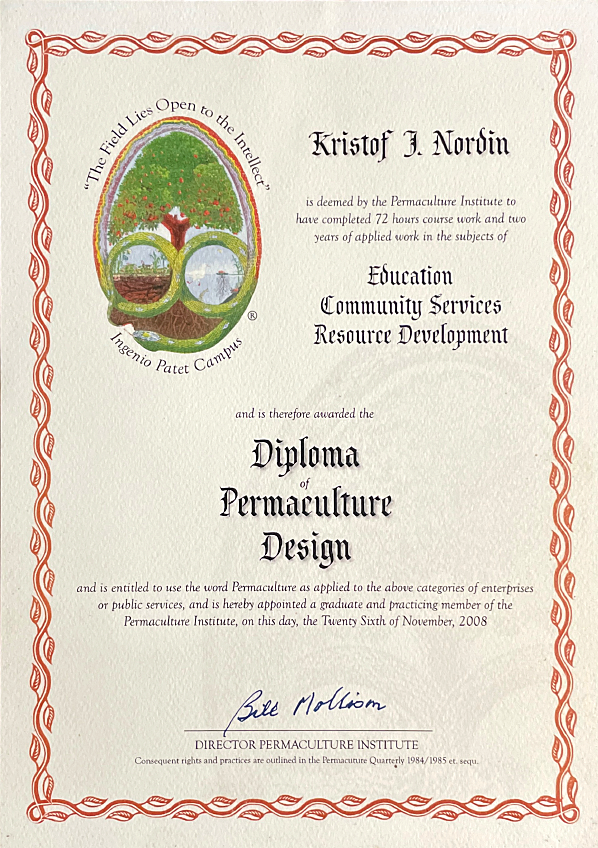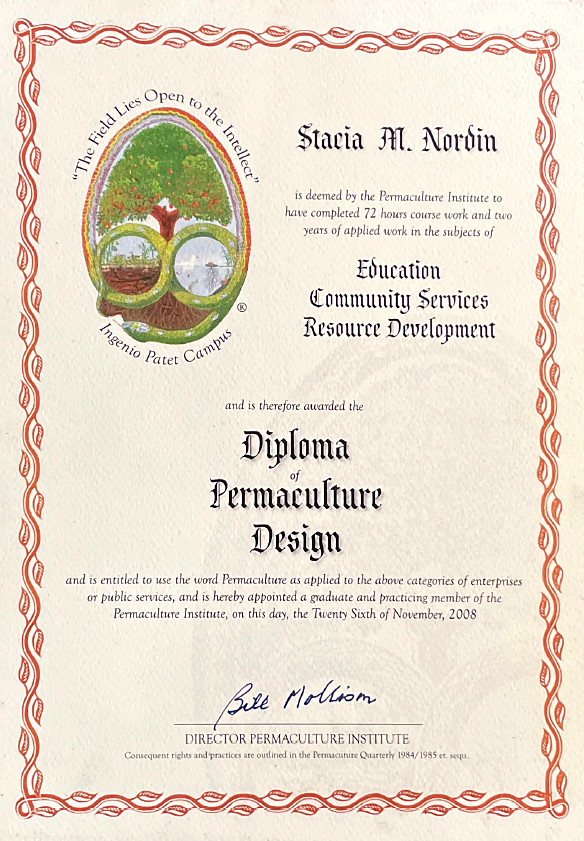

In 2008, Stacia and I received our Permaculture Diplomas signed by Bill Mollison himself! This has to one of the most exciting things that has ever happened to us. This was due to a visit to Malawi by the internationally recognized Permaculturalist, Ali Sharif, from Brazil (who passed away in 2017). As a diploma holder himself, and one of the first student to have been trained by Bill Mollison, he was able to verify our qualifications and facilitate the process. We then wrote a letter to Bill Mollison, outlining our accomplishments over many years of practice in the areas of education, community services, and resources development. This letter was reviewed and approved by Mr. Mollison and we were awarded a Diploma in Permaculture Design. We owe Mr. Sharif a great debt of gratitude. He has also helped to raise the standards of Permaculture in Malawi as we now have five people who hold diplomas in Permaculture design. Ali Sharif was also instrumental in organizing IPC8 in Brazil and gave a great deal of advice and assistance to Malawi in our efforts to set up IPC9.
In 1999 my wife, Stacia, and I were certified through a 12-day Permaculture design course that was given in Malawi, Africa. Since that time, we have been practicing and implementing Permaculture in a wide variety of ways. Due to the chronic food insecurity that the country of Malawi is faced with, we have focused our efforts on improving local diets and nutrition through the incorporation of Permaculture principles. Our work has been based in reviving the knowledge and use of Malawi’s indigenous food crops that are currently being lost, ignored, and stigmatized in favor of foreign crops. This has allowed us to link the fields of education, culture, health, HIV/AIDS, agriculture and the environment to the implementation of Permaculture.
Our home in Malawi has been designed and developed into a training site known as Never Ending Food. This site is currently used for teaching and demonstrating the potential that Permaculture has to remedy many of the problems that we are currently facing in Malawi, such as malnutrition, diseases and poverty. Within this site, we have also created a model village in which local Malawian families are living and demonstrating how Permaculture can be successfully incorporated into daily living. Site design features include rainwater harvesting, fish ponds, outdoor classrooms, solar drying, seed replication and extensive sharing, and guilds/zones based upon the reintroduction of Malawi’s indigenous food crops, local medicines, and other valuable local resources.
Our research into these traditional food crops has built upon and expanded a very limited access to documented resources that Malawi has to offer on its indigenous foods. Due to the lack of written documentation in this area, Malawi is facing an enormous loss of its traditional knowledge as it elderly population passes on. The research that we have accomplished in our time here has led to the creation of a Low Input Food and Nutrition Manual that was funded through the World Food Programme and includes a list of almost 600 different local food crops that we are encouraging people to revive through the implementation of Permaculture.
Over the years, we have taught several 12-day Permaculture Design courses, as well as many 3 to 6-day Introduction to Permaculture courses. As a result of these trainings, we have also built up an extensive base of teaching resources. Many of the posters, handouts, and teaching ideas that we have used over the years are also included within the Low Input Food and Nutrition Manual. We have also created a website that helps to share our projects and teaching ideas with people around the world. This can be found at Never Ending Food.
